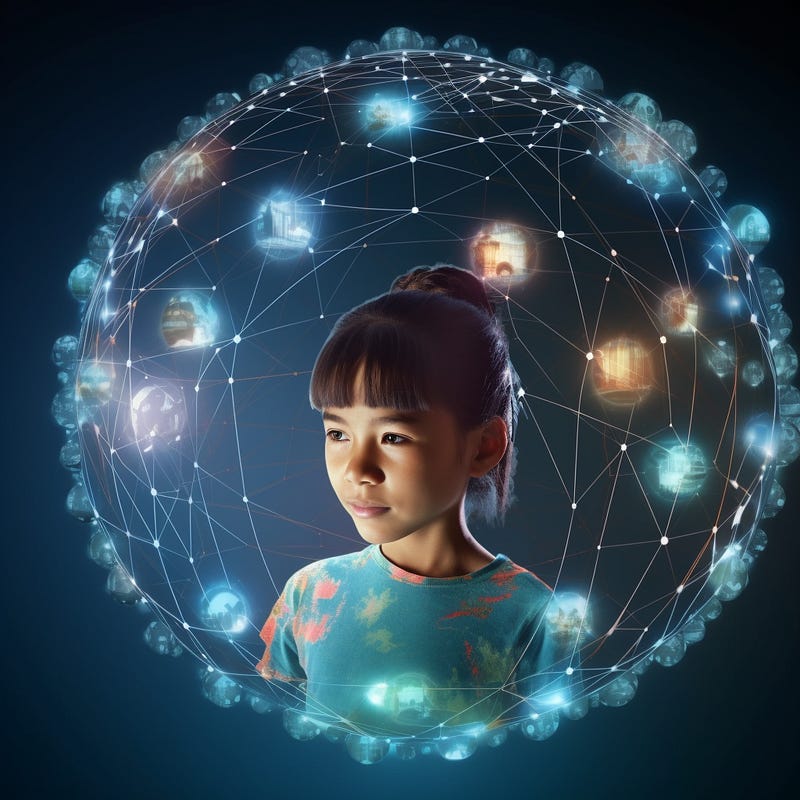Security Avatars in privacy wars
Is it time to: Rethink privacy? Privacy as social identity control. Review identity? Digital twins with no agency. Restore agency? No…
Is it time to:
Rethink privacy? Privacy as social identity control.
Review identity? Digital twins with no agency.
Restore agency? No access or control for individuals.
Privacy, owned by others, risks entraping individuals. China has social scores, the West has credit scores, and there needs to be visibility into our community scores. Our digital twin should have an avatar — an identity object with an agency wend by the individuals it represents.
Agency over our digital twins should be our new privacy objective. Each digital twin should be a child of our digital avatar. We must preserve our authenticity and trust through a digital agency of our choosing and control.
Web3 won’t be this salvation. A new standard needs to be defined, created, and executed for the benefit of humanity. We need a new concept. A tool, platform, and independent compliance regime rolled into one. We, individuals, enforce agreements and execute privacy.
These are very complex but essential questions in our current digital age. Let’s examine each of them individually:
1. Rethinking Privacy: Privacy as Social Identity Control — Traditionally, privacy is understood as the right to be left alone or to withhold personal information. However, this understanding has evolved with the proliferation of data and analytics technologies. Privacy now also means control over how your personal information is used and interpreted. Privacy becomes a means of social identity control in an age where a person’s digital profile can significantly impact real-world opportunities.
2. Reviewing Identity: Digital Twins with No Agency — With advances in AI and machine learning, we are witnessing the rise of ‘digital twins,’ digital replicas of physical entities. These twins can mirror a person’s behavior or preferences based on the data collected about them. While these can be useful in personalizing experiences or predicting behaviors, they can also be misused if they lack ‘agency’ or control from the individual they represent. Thus, reviewing how these digital twins are created and used critically is vital.
3. Restoring Agency: No Access or Control for Individuals — Digital identities should ideally be controlled by the individuals they represent. However, this is only sometimes the case. Tech companies or data brokers often hold these identities, raising concerns about privacy and personal agency. Restoring agency to individuals over their digital identities is crucial for preserving privacy, trust, and authenticity.
A vision for a future where individuals have agency over their ‘digital avatars’ or ‘digital twins’ is compelling. This concept takes privacy to the next level, giving people direct control over their online personas.
Web3, or the decentralized Internet, has been touted as a solution for privacy and control issues. However, as detailed here, it may differ from the salvation everyone expects. There’s still a lot of debate over how privacy, identity, and agency will work in this new digital landscape. A new standard respecting individuals’ rights to control their digital selves must be defined and executed for humanity’s benefit.
In an ever-increasing digital world, it is paramount that we strive for a future where our digital avatars are reflections of our true selves, not just hollow replicas with missing control or consent. Envision a world where your digital avatar is not just a static identity but a dynamic entity that allows you to deploy trusted versions of yourself to providers as and when you see fit. Picture a system where these digital deployments are governed by tokenized contracts, enabling you to reclaim and withdraw your avatar on demand, thus ensuring the fluidity of your online presence.
Such a paradigm shift places the power back in the hands of the individual. It allows each person to maintain authenticity, validate interactions, and engender trust in the digital ecosystem. Each avatar becomes an identity and a unique repository of the individual’s essence, embodying their unique entropy in the digital cosmos.
It is a promising vision that we must strive for to create a truly decentralized, democratic, and equitable digital future. We have the tools, technology, and knowledge to make this happen. All it needs is a collective will, effort, and a universal agreement to prioritize the individual’s rights to their digital self. With such a commitment, the Internet of the future will be a space of data and algorithms and a thriving ecosystem that values and respects individuality, authenticity, and agency.



